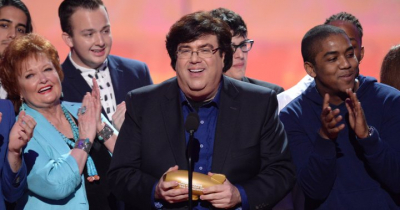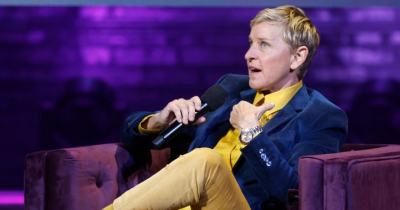Toronto Gears Up for World Cup with Federal Funding Boost
Toronto Mayor Olivia Chow made quite the entrance at BMO Field, donning shin pads, running shoes, a soccer scarf, and a beaming smile. Her enthusiasm was well-founded as the federal government pledged a hefty $104.34 million to support Toronto's role in hosting the 2026 FIFA World Cup.
The funding announcement, unveiled amidst the soccer fervor on a Friday morning, underscores Ottawa's commitment to bolstering Canada's World Cup ambitions. With Toronto set to host six games in two years' time, this injection of financial support marks a significant step forward.
This generous allocation follows Ottawa's earlier pledge of $116.66 million to aid Vancouver in covering the costs of staging seven matches. Back in February, the Ontario government had announced $97 million in funding, contingent upon matching contributions from the federal government. The pieces of the funding puzzle are falling into place, laying a solid foundation for the grand event.
The 2026 World Cup, spanning from June 11 to July 19, will see soccer fever sweep across Canada, the United States, and Mexico. Toronto and Vancouver, designated host cities, are gearing up for their pivotal roles in this sporting extravaganza.
However, with great spectacle comes great expense. Toronto anticipates hosting its share of the expanded 48-team tournament will cost approximately $380 million, with a significant portion allocated to security measures and stadium upgrades. Vancouver faces similar financial challenges, with estimates soaring to $581 million for hosting seven games at B.C. Place Stadium.
Despite the escalating costs, officials express optimism about staying within budgetary constraints. Federal Minister of Sport and Physical Activity, Carla Qualtrough, and Ontario's Minister of Tourism, Culture, and Sport, Neil Lumsden, reassure stakeholders of their commitment to fiscal responsibility.
For Mayor Chow, the federal funding represents a pivotal moment in Toronto's World Cup journey. With combined federal and provincial support, the city is primed to embrace the global spotlight in 2026. As she articulates, "Combine that with the provincial contribution, we are all set to go for FIFA World Cup ’26." The stage is set, and Toronto stands ready to shine on the world stage.
Toronto Gears Up for FIFA 2026 with Federal Backing and Enthusiasm
As Toronto Mayor Olivia Chow confidently affirmed, the die is cast—the city is committed to hosting the 2026 FIFA World Cup, costs notwithstanding. "The bid is signed. We will move forward," she declared, promising to diligently manage expenses while delivering a memorable event.
Federal Minister of Sport and Physical Activity, Carla Qualtrough, echoed Chow's sentiments, emphasizing the unifying power of FIFA 2026. "FIFA 2026 will unite our country like nothing else can," she asserted, highlighting the rare collaboration among all levels of government in support of this monumental endeavor. "Canada is home to the world," Qualtrough continued optimistically, envisioning a warm welcome for global visitors in 2026.
The federal government's substantial contribution is earmarked to cover operational and capital expenses associated with Toronto's six allocated matches. Chow detailed how these funds will bolster infrastructure enhancements, operational costs, promotional activities, and the cultivation of lasting legacies. "The funds will help us welcome hundreds and thousands of people to our city, to showcase Toronto to the world," she affirmed.
In addition to financial support, the federal government pledges assistance in critical areas such as border services, security, intelligence, and work visas. Qualtrough assured that resources would be marshaled efficiently, drawing from existing capacities over the next two years.
The economic potential of the World Cup for Toronto and Ontario is vast, with projections of job creation, increased tourism, and substantial boosts to GDP. Anticipated figures suggest over 3,500 jobs, 300,000 out-of-town visitors, and significant economic gains, underlining the event's significance beyond the realm of sports.
Amidst the excitement, a nod to soccer luminary John Herdman, the former Canada coach turned Toronto FC mentor, added a touch of nostalgia. While he was absent during Mayor Chow and Minister Qualtrough's symbolic ball-kicking moment, his presence served as a reminder of the sport's enduring legacy.
For Mayor Chow, FIFA 2026 represents more than just a sporting spectacle—it's an opportunity for collective rejuvenation and community cohesion, especially in the aftermath of the pandemic. "This is the time that we bring people back out through the love of sports and have them participate," she remarked, underscoring the event's potential to reignite civic engagement and foster connections among Torontonians.
As preparations gather pace, Toronto eagerly anticipates its moment in the global spotlight, ready to showcase its vibrancy and hospitality to the world. With federal support and unwavering enthusiasm, the city is poised to deliver a World Cup experience that will be remembered for generations to come.
In conclusion, as Toronto gears up to host the FIFA 2026 World Cup, the collaboration between all levels of government, spearheaded by Mayor Olivia Chow and Federal Minister Carla Qualtrough, reflects a unified commitment to delivering a spectacular event. Despite the financial challenges, their optimism and strategic planning pave the way for a successful tournament that promises to unite communities, boost economies, and showcase Toronto's rich diversity to the world. With anticipation building and preparations in full swing, the countdown to FIFA 2026 heralds a momentous chapter in Toronto's history—one that embodies the enduring spirit of resilience, camaraderie, and sporting excellence.






